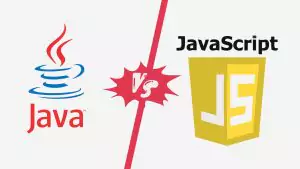Java, a versatile and widely-used programming language, has various operators that perform different operations. One such operator is the ++ operator, which is commonly referred to as the increment operator. This article will delve into what ++ means in Java and also shed light on its counterpart in C++.
Breaking Down the Increment Operator
In Java, the increment operator, represented by ++, is an invaluable tool for manipulating numerical variables. It is specifically designed to increase the value of a variable by exactly one unit. What sets it apart is its ability to be utilized in two distinct formats: prefix and postfix.
Prefix Increment (++variable)
When the ++ operator is placed before the variable, it is termed as a prefix increment. This means that the variable is incremented first and then used in the expression. This is applicable to variables of types such as int and double.
int number = 5;
int result = ++number;
// number is now 6, and result is 6
Postfix Increment (variable++)
Contrastingly, when the ++ operator follows the variable, it is termed as a postfix increment. In this scenario, the variable is first used in the expression and then incremented. This is also applicable to int and double types.
int number = 5;
int result = number++;
// number is now 6, but result is 5
Whether you use the prefix or postfix increment operator, it’s essential to understand how the value of the variable is affected. With prefix, the value is incremented before it is used in the expression. With postfix, the value is used first, then incremented.
For instance:
double x = 10.5;
double y = x++; // y is 10.5, x is 11.5
Comparing Java’s Increment Operator with C++
While the ++ operator exists in both Java and C++, understanding the nuances between the two implementations is essential for those who work across these languages. Let’s take a more detailed look at the subtle differences.
In both Java and C++, the increment operator can be used in prefix and postfix forms. The prefix form (++variable) increments the variable before it is used in an expression, whereas the postfix form (variable++) uses the variable in an expression before incrementing it. Also, both Java and C++ allow the ++ operator to be used with integer types.
One of the major distinctions, however, between the ++ operator in Java and C++ is that C++ supports operator overloading. This means that in C++, you can redefine the behavior of the ++ operator for user-defined types (like classes). This flexibility enables developers to create more intuitive interfaces for custom types. For instance, in C++, you might create a Counter class, and overload the ++ operator to increment a counter in a custom way:
class Counter {
private:
int count;
public:
Counter() : count(0) {}
// Overloading the prefix ++ operator.
Counter& operator++() {
this->count += 10; // Increment by 10 for example purposes.
return *this;
}
};
int main() {
Counter c;
++c; // This will increment the internal count by 10, not by 1.
}
This kind of functionality is not available in Java, as Java does not support operator overloading.
Iteration using Increment Operator
One of the common applications of the ++ operator is iteration. The increment operator is extensively used in for-loops to iterate through elements in data structures such as an ArrayList.
In Java, an ArrayList is a resizable array that can store elements. You can use the increment operator within a for-loop to traverse through each element in an ArrayList. Here’s an example:
ArrayList<Integer> numbers = new ArrayList<>();
numbers.add(1);
numbers.add(2);
numbers.add(3);
for(int i = 0; i < numbers.size(); i++) {
int element = numbers.get(i);
System.out.println(element);
}
Summary
- The
++operator is used for incrementing the value of a variable in Java. - There are two types of increment operators in Java – prefix and postfix.
- The
++operator can also be found in C++ with slight differences. - It is widely used in iteration, especially in for-loops.
- Understanding how the value of a variable is affected by prefix and postfix is essential.
The increment operator is a powerful tool in Java, facilitating simplified code in iterations and other operations involving variables of types such as int and double. Being vigilant of the distinction between prefix and postfix is imperative for accurate and efficient coding, and you can practice it or choose to pay someone to do programming homework.
FAQ
What are the uses of ++ in Java?
The ++ operator in Java is primarily used for incrementing the value of a variable by 1. It is extensively used in loops and iterations to increment the counter variable. Moreover, it can be used for shorthand assignments to increment the value of a variable succinctly.
Is ++ operator available in other programming languages like C++?
Yes, the ++ operator is also available in other programming languages, including C++. It functions similarly in C++ as it does in Java, being used for incrementing a variable. However, C++ allows for operator overloading, which means that the behavior of the ++ operator can be customized in C++ classes.
How does Java iteration compare to C++ iteration?
Java iteration is somewhat similar to C++ iteration, especially when it comes to traditional for-loops. However, Java provides more streamlined ways to iterate through collections with enhanced for-loops and iterators. On the other hand, C++ provides more control and efficiency with pointers and range-based loops. Both languages have their strengths, with Java focusing on ease of use and readability, and C++ leaning towards control and performance.
Can ++ be used with different data types in Java?
The ++ operator can be used with integer and floating-point data types in Java, such as int, byte, short, long, float, and double. It is not applicable to boolean, string, or any non-numeric data types. The ++ operator is also not used with wrapper classes like Integer or Double. Instead, it’s primarily used with primitive numeric data types.
Follow us on Reddit for more insights and updates.





Comments (0)
Welcome to A*Help comments!
We’re all about debate and discussion at A*Help.
We value the diverse opinions of users, so you may find points of view that you don’t agree with. And that’s cool. However, there are certain things we’re not OK with: attempts to manipulate our data in any way, for example, or the posting of discriminative, offensive, hateful, or disparaging material.